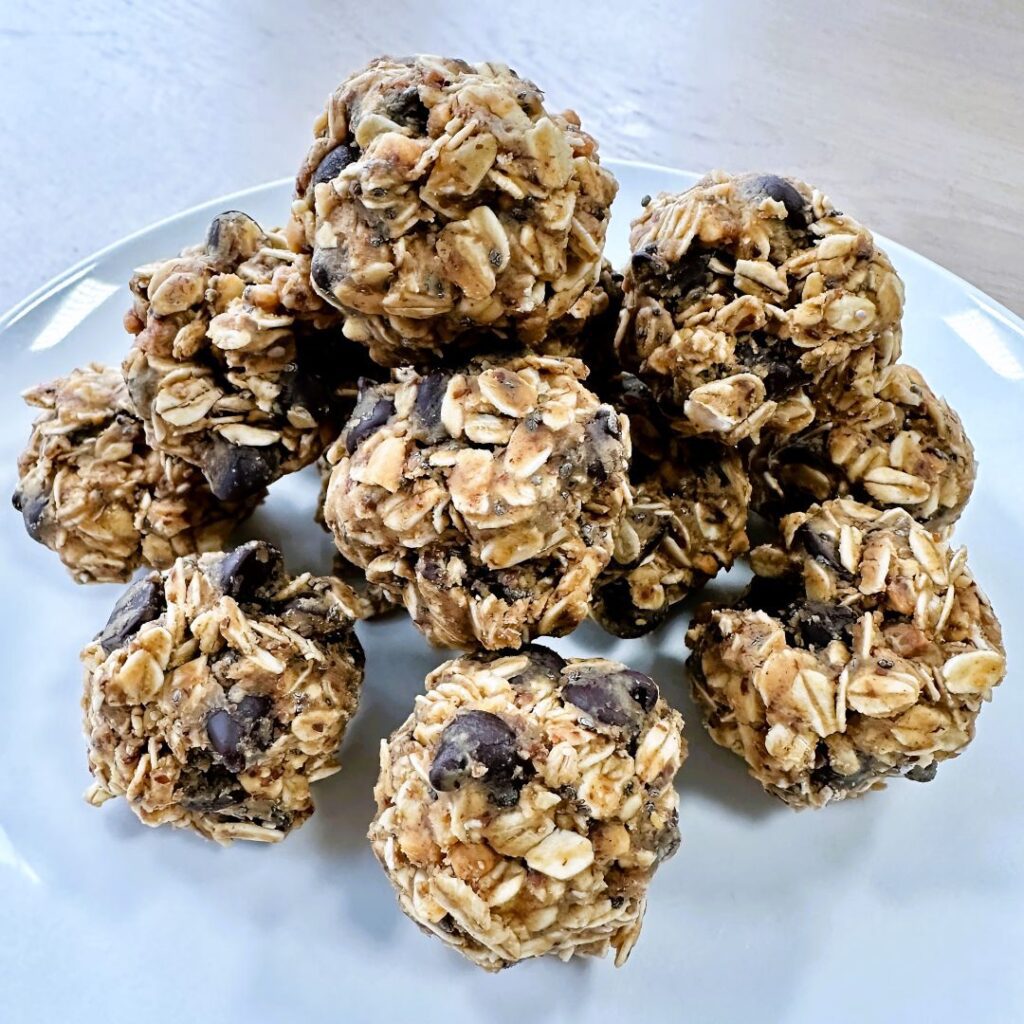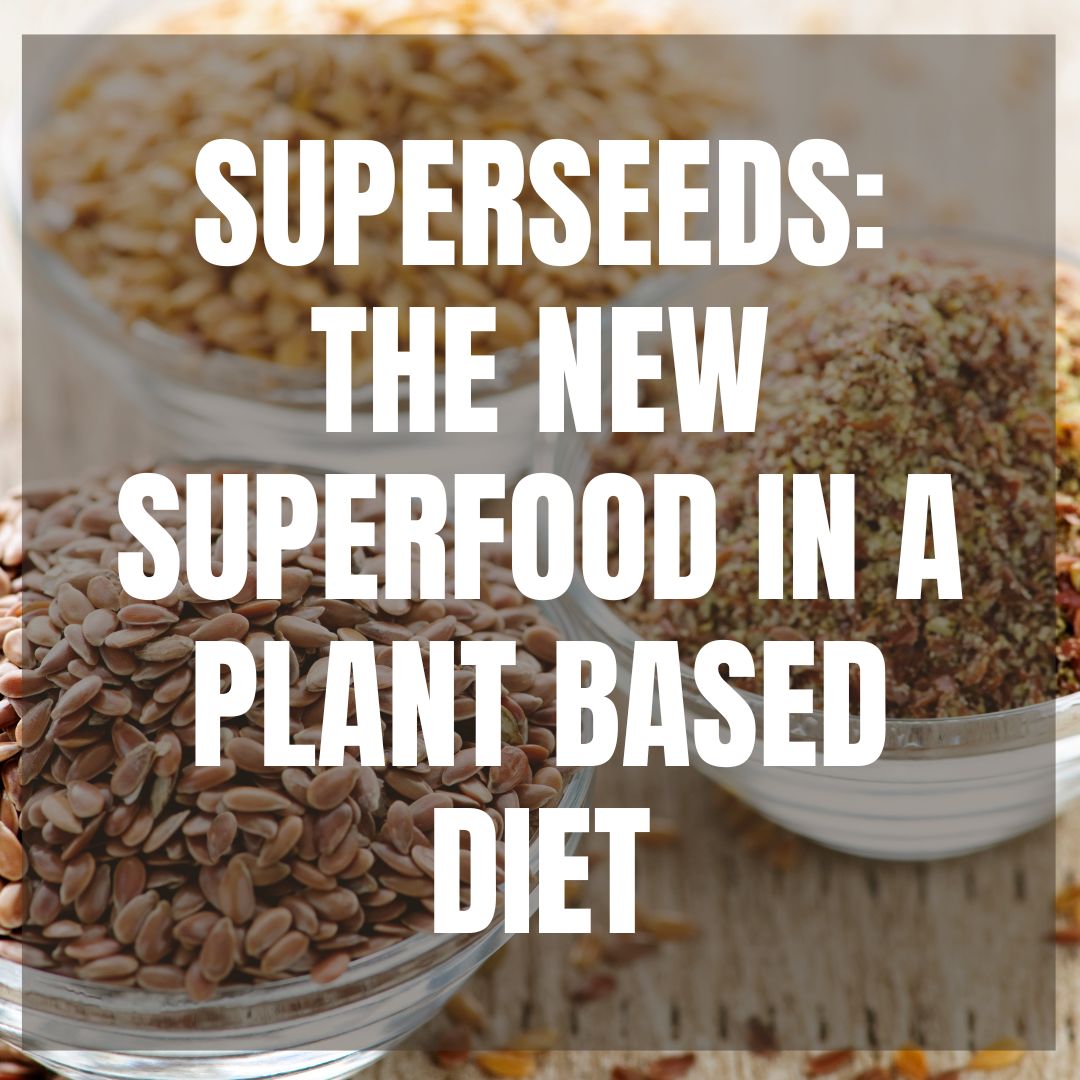There’s a lot of buzz around tiny foods that pack a big punch, and seeds are leading the charge. From adding crunch to salads to blending into smoothies and baked goods, superseeds are an easy way to boost nutrition.
Much of the nutritional information shared here comes from a helpful Washington Post article: A GUIDE TO CHIA, FLAX AND HEMP SEEDS A.K.A ‘SUPERSEEDS’ – a great resource for anyone looking to understand the unique benefits these small but mighty foods bring to a plant-based plate. The information provided here is based on widely available research and personal experience in plant-based living. It’s always a good idea to consult your healthcare provider for personalized dietary or health advice.
What Makes a Superseed
Not all seeds earn the title “super.” What sets them apart is a mix of factors:
- Nutrient density: rich in fiber, healthy fats, protein, vitamins, and minerals
- Versatility: easy to add to almost any meal or snack
- Digestibility: often easy to absorb, especially when ground
- Health benefits: linked to better heart health, digestion, energy, and more
Chia Seeds: Tiny but Nutrient-Dense
Chia seeds are rich in fiber and omega-3 fats. One ounce (about 2 tablespoons) offers 10 grams of fiber and 5 grams of protein, along with magnesium, niacin (vitamin B3), phosphorus, and zinc.
They help support digestion and can make meals more filling. You don’t need to grind or soak them, but ground chia can work better in some recipes.
Flaxseeds: A Fiber and Antioxidant Powerhouse
Flaxseeds deliver 8 grams of fiber and 5 grams of protein per 1-ounce serving (about 3 tablespoons). They’re a solid source of omega-3s, magnesium, and thiamine (vitamin B1).
Their standout feature? Lignans — powerful antioxidants that may help lower the risk of osteoporosis, heart disease, and breast cancer. To unlock these nutrients, flaxseeds must be ground. Use a spice grinder or buy pre-ground flax, and store it in the fridge to keep it fresh.
Hemp Seeds: Plant-Based Protein Boost
Hulled hemp seeds are lower in fiber but rich in protein. A 1-ounce serving (about 3 tablespoons) offers 1 gram of fiber and 9 grams of protein — almost double the protein in chia or flax.
They’re also high in iron, magnesium, and phosphorus. Mild and nutty in flavor, hemp seeds blend well into both sweet and savory dishes.
Other Seeds Worth Trying
Beyond the big three, several other seeds deserve attention. Sunflower seeds are rich in vitamin E, selenium, and healthy fats. Sesame seeds offer calcium, magnesium, and compounds that support heart health. Pumpkin seeds (pepitas) are high in zinc, magnesium, and iron. Even poppy or cumin seeds provide trace nutrients and plant diversity. Mixing different seeds adds variety and helps balance your nutrient intake.
Easy Ways to Use Superseeds
Seeds are versatile and simple to add to everyday meals. Here are a few ideas:
- Sprinkle on oatmeal, salads, or toast
- Stir into smoothies, plant-based yogurt, or grain bowls
- Add to soups, stews, or roasted vegetables
- Mix into hummus, dips, or homemade dressings
- Use flax or chia as a binder in veggie burgers or baking
- Blend into pestos or sauces
- Make overnight oats or chia pudding
- Add to baked goods like muffins, bars, or quick breads
- Include in energy bites or homemade granola
- Combine into a custom “superseed sprinkle” to keep on hand
Try This NO-BAKE PEANUT BUTTER OATMEAL BALLS Recipe:
Looking for a fun way to add seeds to your snacks? Try this simple, nutrient-packed recipe. They’re an easy, feel-good snack perfect for busy days, midday cravings, or whenever you need a quick pick-me-up.

Ingredients:
•1 C Rolled Oats
•½ to ¾ C Favorite Nut Butter
•¼ C Ground Flaxseeds
•2 Tbsp Maple Syrup
•2 Tbsp Chia Seeds
•1 tsp Vanilla Extract
•⅓ C Dairy-Free Chocolate Chips
Instructions:
- In a large bowl, combine all ingredients.
- Mix well until everything is evenly incorporated.
- Use a spoon or scoop to form small balls.
- Place on a lined tray and chill in the fridge for 15–30 minutes.
- Store in an airtight container in the fridge.
These make a great grab-and-go snack, especially before or after a workout.
How to Store Seeds
Storing seeds properly helps preserve their nutrients, flavor, and shelf life. Because many seeds are high in healthy fats, they can go bad over time if exposed to heat, light, or air. In general, however, the seeds do have a fairly decent shelf life.
Here are some tips for keeping your superseeds fresh:
- Use airtight containers: Mason jars, glass containers with tight-fitting lids, or reusable silicone bags work well. Avoid leaving seeds in opened bags or boxes.
- Store in a cool, dark place: A pantry is fine for short-term storage of whole seeds like chia or hemp, but refrigeration is better for longer freshness.
- Refrigerate or freeze sensitive seeds: Ground flaxseed, once exposed to air, should be stored in the refrigerator. You can also refrigerate or freeze pumpkin, sunflower, or sesame seeds to extend shelf life and prevent oxidation.
- Buy in small batches: Only purchase what you’ll use within a few months, especially for ground or hulled seeds. This keeps things fresher and prevents waste.
- Label and date your containers: Seeds may not show visible signs of spoilage, so it helps to keep track of when you opened or ground them.
To check for freshness, give seeds a sniff before using them. If they smell bitter, musty, or “off,” they’re likely past their prime and should be tossed.
Why Variety Is Essential in a Plant-Based Diet
When it comes to plant-based eating, variety is more than just a way to keep meals interesting, it’s a powerful strategy for better health. Different plant foods provide different types of fiber, phytonutrients, and essential micronutrients. By eating a wide range of plants, you support your body’s natural systems in multiple ways.
Diversity also helps ensure you’re covering your nutritional bases. For example:
- Lentils provide iron and folate, while leafy greens add calcium and vitamin K
- Berries are rich in antioxidants, and cruciferous vegetables help support liver detox
- Seeds contribute healthy fats and plant-based protein, along with key minerals like zinc and magnesium
Aiming for a mix of colors, textures, and food categories (grains, legumes, vegetables, nuts, seeds, herbs) doesn’t have to be complicated. Start by rotating your greens, switching up your whole grains, or adding a new seed or bean to your weekly rotation.
Ultimately, variety brings balance, and balance brings results.
What Is Fibermaxxing and Why Are People Talking About It?
Fibermaxxing is a growing trend that’s taken off on social media, especially among plant-based and wellness communities. The idea is simple: center your meals around high-fiber plant foods, rather than treating fiber as an afterthought. The term itself is a mash-up of “fiber” and “maximizing,” and it reflects a shift in how people are thinking about nutrition and fullness.
So why did this catch on? Part of it is a growing awareness that most people don’t get enough fiber. In fact, some studies show that nearly 95% of Americans fall short of the recommended 25–35 grams of fiber per day. Wellness influencers and registered dietitians began using platforms like TikTok and Instagram to promote fiber-rich meals as a way to improve digestion, blood sugar balance, and overall health, and the idea took off.
Fibermaxxing is all about boosting your intake of fiber-rich plant foods to improve digestion, energy, and overall wellness. Some say it’s linked to benefits like better gut health, more stable blood sugar, improved satiety, and even lower cholesterol. But ramping up fiber too quickly can cause bloating or discomfort, especially without enough water. And for those with sensitive digestion, not all fiber sources may work well. The key is to take a balanced, gradual approach, start with small additions like chia or flax seeds, stay hydrated, and let your body adjust naturally. It’s a powerful, practical strategy that aligns well with a plant-based lifestyle.
Final Thoughts
Superseeds may be small, but their impact is big. Whether you’re adding them to smoothies, snacks, or your morning oats, they offer a low-effort way to boost fiber, protein, and essential nutrients.
Try rotating in a few different types and see how easily they fit into your day. A spoonful here and there can go a long way toward supporting a healthy, plant-forward lifestyle.






